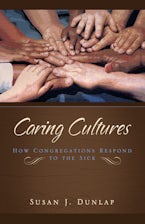
Caring Cultures
How Congregations Respond to the Sick
Imprint: Baylor University Press
Sales Date: 2009-06-16
260 Pages, 5.50 x 8.50 x 0.75 in

Imprint: Baylor University Press
Sales Date: 2009-06-16
260 Pages, 5.50 x 8.50 x 0.75 in